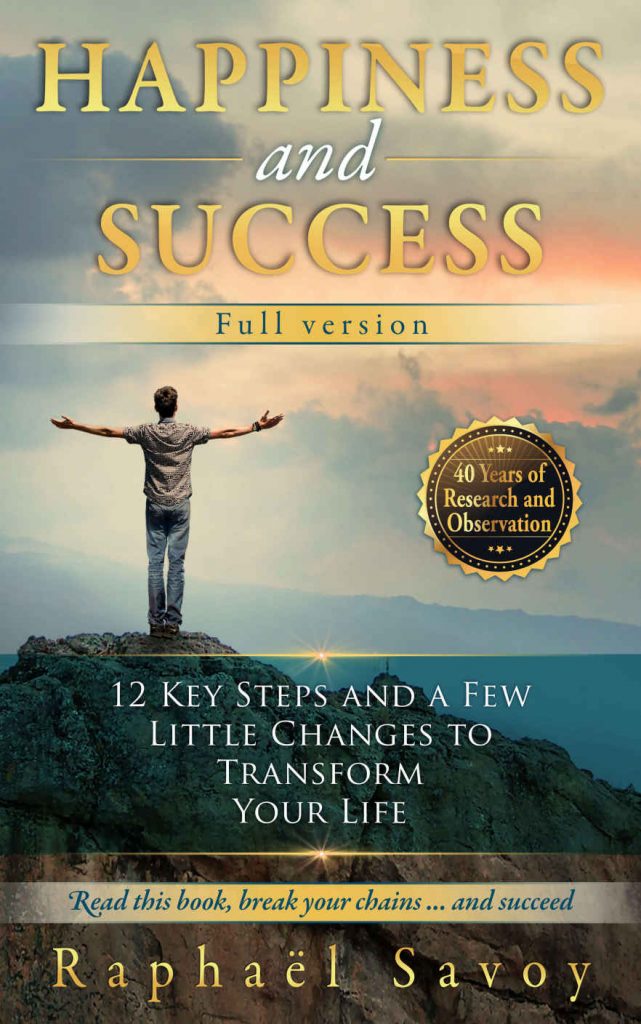
Author Raphaël Savoy has created a pragmatic philosophical guide for leading one’s life more fully through acceptance in Happiness and Success: 12 Key Steps and a Few Little Changes to Transform Your Life.
Savoy has aimed his book at people who are ostensibly comfortable based on their location and station in life, but who continue to feel dissatisfied – in other words, to be happy with success, not just to achieve it. He begins by stating that human beings are uniquely designed to seek happiness – as humans have evolved, they have designed complex cultures dedicated to principles of becoming and remaining happy, avoiding suffering and generally making our lives easier. Unfortunately, not everyone belongs to the same culture, some cultures are better at preserving happiness than others. While the West has a good “quality of life,” this is not always reflected in people’s overall happiness.
To really experience happiness, Savoy states, we must drop the notion that we can change anything outside ourselves. We will never be happy as long as we believe we can make others happy or direct the lives of, for example, our children. For this reason, many of the world’s great philosophies are based on the notion of “letting go.” To many of us, this idea is anathema since it seems to imply failure or surrender. But in fact it propounds that we must accept what is, recognizing we can’t change things.
On the question of “What is reality?” Savoy counters with the proposition that we don’t really need to know what reality is. To be successful and happy does not require knowing the answers to existential questions. Happiness comes when we abandon fears, guilt and worry and stop living in the “bad movie” of past mistakes or dread of unknown futures. Happiness requires that we live in the present moment, so the book has a decidedly Eastern perspective aimed at Western readers, who may have a different definition of success.
Savoy, a Swiss computer engineer, writes with enviable exuberance and confidence. There are humorous passages in which he mocks the many mistakes that can be made during one’s journey of discovery. The book is interspersed with pictographs that illustrate his central points, and he advises the reader to study them in detail for greater understanding. He also offers questions we can ask ourselves about the nature of our fears and negative thoughts, along with practical suggestions for such crucial issues as overcoming obsessive ideation and changing our points of view so as to remain calm, open and flexible in all life’s situations. He sagely states that we can’t make changes in ourselves until we relinquish “bad faith, the sense of honor, and pride.”
Savoy’s prose is dense at times, and borrows much from other philosophers and self-help writers, so the book does not always cover new ground. He does, however, admit that his advice is not entirely new – it is based on previous methods that readers may have studied. That said, it does give a good overview of self-help practices overall, while omitting much of the fluff that can be found in self-help literature. He conveys that he has discovered certain “keys” that will make his methods more realistic and more genuinely helpful than preceding works, and indeed there is a practical edge to this book where principles can be more likely be put into direct action, rather than providing a list of positive slogans.
All in all, Savoy has constructed a useful guide to Eastern principles that speaks to the active consciousness of Westerners, and could lead such restless minds to a more peaceful perspective.
Book Links
STAR RATING
Design
Content
Editing
Get an Editorial Review | Get Amazon Sales & Reviews | Get Edited | Get Beta Readers | Enter the SPR Book Awards | Other Marketing Services























Leave A Comment